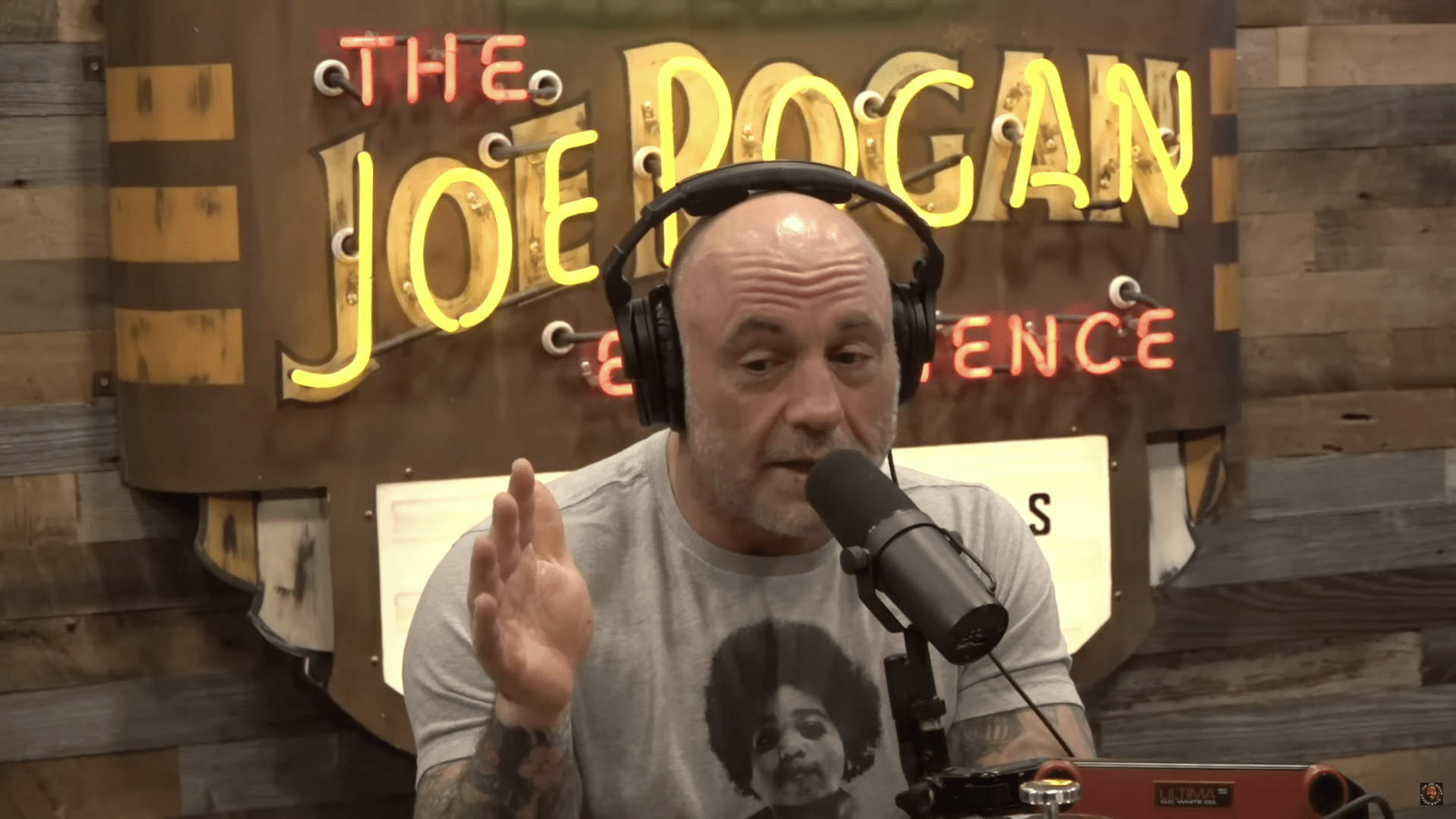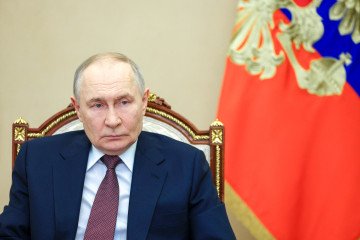- Category
- Anti-Fake
What’s Wrong With Joe Rogan’s Rhetoric on Ukraine and Russia’s Full-Scale Invasion

Joe Rogan, the most influential podcasters in the world, has sparked controversy once again—not for his trademark hot takes on diet or MMA but for a recent episode where his commentary on the war in Ukraine mirrored strikingly familiar Kremlin propaganda.
People are big mad. https://t.co/wngdA9zOrm
— Joe Rogan Podcast (@joeroganhq) November 25, 2024
On November 23, 2024, Joe Rogan hosted Scott Stork, former keyboardist of the seminal 90s hip-hop/R&B band The Roots, on his globally recognized podcast. The conversation, as expected, began with the usual cigar smoke and riffing, and veering into culture war topics about crime rates and urban decline.
However, it didn’t take long before the discussion turned to the war in Ukraine, where Rogan’s rhetoric began to bear an uncomfortable resemblance to Kremlin propaganda.
Rogan and Stork spent much of the opening hour lamenting “incompetent leadership” in major American cities. Stork, who admitted to being politically uninformed, nonetheless declared he felt “much safer” knowing Donald Trump would soon return to office, framing Trump as a stabilizing force in chaotic times.
Rogan, always eager to engage in unscripted political commentary, used this moment to shift gears toward Ukraine. His apparent lack of expertise didn’t stop him from making lukewarm takes on the topic.
A truly great America stands with those defending freedom and democracy, @joerogan.
— UNITED24 Media (@United24media) December 1, 2024
👇🧵 1/5 pic.twitter.com/asrdWeVfOt
The conversation quickly spiraled into fears about World War III. Rogan criticized President Joe Biden for greenlighting the use of US-supplied missiles to strike Russian territory, painting the decision as reckless and a direct provocation toward global annihilation. This was evidence of a Western agenda hurtling the world toward disaster for Rogan.
“Zelenskyy says Putin is terrified. Fuck you, man. Fuck you people. You people are about to start World War III,” Rogan said. “Fucking insanity because those intercontinental ballistic missiles can have nukes on them. This didn’t, but if it does the whole world changes and it changes because the military-industrial complex and it changes because of the money that’s going to Ukraine. It changes because the outgoing president, or whoever the fuck is actually running the country, has decided to do something fucking insane.”
Rogan’s fixation on Ukraine’s use of American missiles highlighted his limited grasp of the war. He was livid towards the notion that outlets like CNN could frame these strikes as a “good thing,” missing the critical context entirely.
Russia has been bombarding Ukrainian cities with missiles, drones, and artillery daily for over 1,000 days. Civilians are killed, homes are obliterated, and critical infrastructure is so badly damaged that it left Ukrainians on the brink of an energy crisis.
Ukraine’s strikes on Russian military targets are not acts of aggression—they’re acts of defense in the theater of war. Rogan disregarded the fact that Ukraine has been targeting Russia’s military assets with domestically developed drones and other weaponry since much earlier in the full-scale invasion. He framed the situation as though Ukraine had suddenly escalated the war, ignoring the brutal and ongoing nature of Russia’s aggression.
This selective outrage is a hallmark of Kremlin disinformation, which seeks to portray Ukraine as an instigator and the West as a destabilizing force. Rogan’s comments, whether intentional or not, fit neatly within this narrative.
Rogan’s rhetoric didn’t appear in a vacuum. For years, Russian propaganda has been infiltrating Western discourse, using free speech as a weapon to sow doubt and spread disinformation. Figures like Tucker Carlson, along with Twitter influencers like Jackson Hinkle and “Syrian Girl,” amplify Kremlin narratives, framing Ukraine as a proxy of the West and portraying its fight for survival as an act of provocation.
This ecosystem thrives on mistrust—of governments, media, and established institutions. Russian influence operations have greatly exploited this mistrust, using proxy channels and anonymous social media accounts to plant narratives that spread like wildfire.
The recent FBI exposure of a Russian-controlled media ring in the United States only underscores how deeply entrenched these networks are. Twitter, with its anonymous accounts and bot networks, has become a battleground where these narratives are amplified.
Rogan’s massive platform inadvertently becomes part of this machinery. By echoing Kremlin-aligned narratives, he lends a credible voice to narratives designed to fracture Western unity and erode support for Ukraine.
By amplifying Kremlin talking points, whether knowingly or not, Rogan risks distorting public understanding of Ukraine’s fight for survival and playing into the hands of those seeking to undermine global solidarity.
. @joerogan , I disagree pic.twitter.com/tSGvwUnXOQ
— Klitschko (@Klitschko) November 24, 2024
In response to Rogan’s remarks, prominent Ukrainian figures were quick to push back, including heavyweight boxing champions Oleksandr Usyk and Wladimir Klitschko. Klitschko even extended a public invitation to Rogan, asking to appear on his show to discuss the realities of the war in Ukraine.
Rogan’s team, however, seemed dismissive. In a now-deleted post, they polled their audience on whether Klitschko’s appeal should be taken seriously, implying that the boxer’s request was more about seeking attention than fostering meaningful dialogue. As of now, no meeting between Rogan and Klitschko has been planned.
Meanwhile, Ukrainian President Volodymyr Zelenskyy recently agreed to a long-form conversation with Lex Fridman, another popular podcaster and occasional guest on The Joe Rogan Experience.

-3db1bc74567c5c9e68bb9e41adba3ca6.png)




-f88628fa403b11af0b72ec7b062ce954.jpeg)